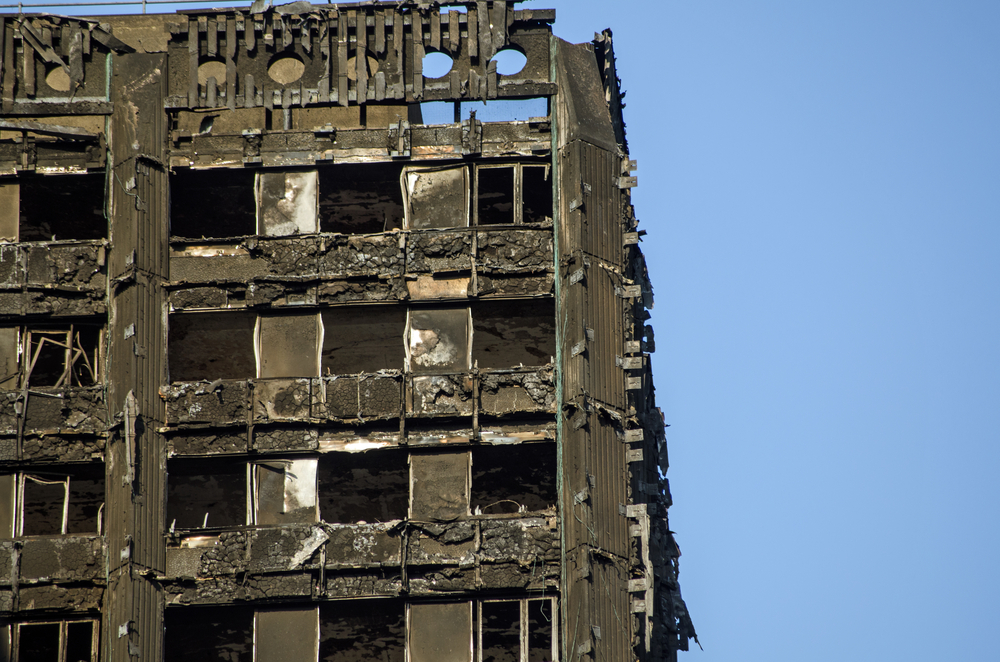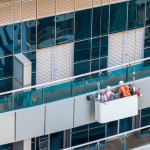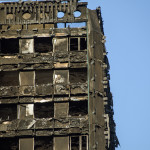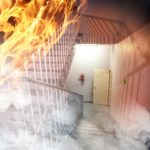News - Construction News
Grenfell Review calls for system overhaul

After ten months intense investigations, Dame Judith Hackitt has released her report on the Grenfell Tower tragedy.
Chair of the independent review launched into Building Regulations and Fire Safety, Dame Judith has recommended a fundamental reform of the building system in order to improve building safety and rebuild trust in the safety of high rise properties.
Much to the surprise of many within the industry, the report has fallen short of calling for a total ban on flammable cladding.
The review has been looking into the design, construction and management of buildings in relation to fire safety, and has concluded that the regulations and guidance for construction are in themselves “ambiguous and unclear” and that the systems for testing and certifying products was “disjointed, confusing, unhelpful and lacking any sort of transparency”.
She said that the system needs a complete overhaul and the construction industry needs to take responsibility for the delivery of safe buildings.
“This is a systemic problem.” She says in the report “The current system is far too complex, it lacks clarity as to who is responsible for what, and there is inadequate regulatory oversight and enforcement. Simply adding more prescription or making amendments to the current system, such as restricting or prohibiting certain practices, will not address the root causes.”
In a damning remark on the industry, she says: “[these] issues have helped to create a cultural issue across the sector, which can be described as a ‘race to the bottom’ caused either through ignorance, indifference, or because the system does not facilitate good practice. There is insufficient focus on delivering the best quality building possible, in order to ensure that residents are safe, and feel safe.”
The full review builds on the interim report, released in December, which showed the failings in the current system and set out six key areas for further work. It sets out an ambitious vision for a new framework which will improve standards for both new and existing buildings.
Recommendations from the report include:
- a new regulatory framework for buildings over ten-storeys
- holding developers and building managers responsible for fire safety
- the creation of a new body to ensure the management of safety risks
- clearer roles and responsibilities for duty holders
- better testing regime plus better labelling and product sourcing
- more effective procurement prioritising high-safety and low-risk rather than cost
Nick Baveystock, Institution of Civil Engineers (ICE) Director General said: “The review makes the important point that we must begin thinking of buildings as a system. The UK’s infrastructure sector has recognised this, and is leading the way in adopting Building Information Modelling. This approach has changed the way in which we look at the whole life of an asset, by modelling and recording aspects of this complex system in a digital version.”
Brian Berry, Chief Executive of the FMB, said: “Today’s report is the culmination of a long and thorough review into the weaknesses of the current approach to competency and compliance in the sector, weaknesses which can serve to undermine safety. It is a suitably serious response to the Grenfell Tower tragedy. Dame Judith has understandably focused the attention of the review on high rise residential buildings, but we believe strongly that some of the recommendations must be taken as a blueprint for the wider industry. In particular, the industry as a whole needs to develop a comprehensive approach to competence. There is an opportunity here for the whole industry to step up and ensure we have adequate levels of competence across the sector.”
Survivors and bereaved of the Grenfell blaze have said they are “saddened and disappointed” that the call to ban combustible cladding products has been ignored.
On the day of the review was released, the 2018 FM Global Resilience Index revealed that the UK ranks 34th in the world when it comes to resilience to fire.
The UK is currently less resilient to fire-risk than countries such as; Russia (21st) Bulgaria (24th), Bosnia and Herzegovina (26th), Greece (10th), Poland (13th), Turkey (17th). It is also way behind other developed nations in the EU.
The fire risk quality score takes into account the quality and enforcement of a country’s building codes, along with a measure of the fire risk quality of actual facilities visited by FM Global’s property risk engineers.
Tom Roche, Senior Consultant for International Codes and Standards at FM Global, commented on the findings of the Hackitt Review: “While the Hackitt Review provides some clarity over who is responsible for what and when, it’s disappointing not to see a direct call for current technical guidelines to be reviewed. Instead, it looks like the Government will be pushing more responsibility onto industry to ensure building safety. Pushing responsibility onto industry without issuing updated technical guidance is likely to create further confusion for building owners who are typically looking to government guidelines and building standards to make sure they are compliant. Hackitt also falls short of calling for a ban on combustible materials, again pushing the responsibility onto industry to trace and test materials. Without any bans in place, it’s even more imperative that the Government takes responsibility for updating technical guidance for the industry to use.
“Hackitt’s report focuses heavily on high rise residential buildings. No doubt this is an important area post Grenfell. However, Grenfell exposed multiple failings across the UK’s fire safety systems that were not just specific to high rise buildings. When it comes to fire safety, we need the same level of rigour to be applied to all buildings, including homes, schools, hospitals and workplaces, many of which are low rise buildings.
“What is clear from this review is that rather than waiting indefinitely for the Government to provide answers, building owners need to get ahead of the issues and have a fire safety strategy in place. If there’s a material they are unsure about the safety of, they shouldn’t delay for the Government to make recommendations, they should get it looked at now.”
In anticipation of the review, the government announced it will fully fund the removal and replacement of unsafe cladding by councils and housing associations.
In a move estimated to cost some £400M, the government will ensure non-profit making Local authorities and housing associations will be given access to funds to help with reasonable costs of removing and replacing unsafe cladding from buildings which they own to ensure people are safe in their homes.
The fund follows the government’s offer last year of financial flexibilities to assist local authorities with essential fire safety work. Interim safety measures are in place in all affected buildings and latest figures from the Ministry of Housing, Communities and Local Government show that over 65% (104 out of 158) of social housing buildings with unsafe cladding are currently going through the process of remediation.
Housing Secretary Rt Hon James Brokenshire MP said: “People must always feel safe in their own home.
“Since the tragic events at Grenfell Tower, we have taken steps to ensure the immediate safety of all high rise buildings.
“This money will ensure local authorities and housing associations are being given the support they need to get this work done now as well as removing the uncertainty around funding.”
If you would like to read more articles like this then please click here.
Related Articles
More News
- UK Introduces New Trade Measures to Support Steel Sector
11 Jul 25
Steel producers across the UK will benefit from stronger trade measures from 1 July.
- Clean energy future to be ‘built in Britain’
10 Jul 25
The Clean Energy Industries Sector Plan comes into force to ‘build it in Britain’.
- Thousands more to get the tools they need to start construction careers
9 Jul 25
Thousands of people are set to benefit from on-the-job training and career opportunities in the






